
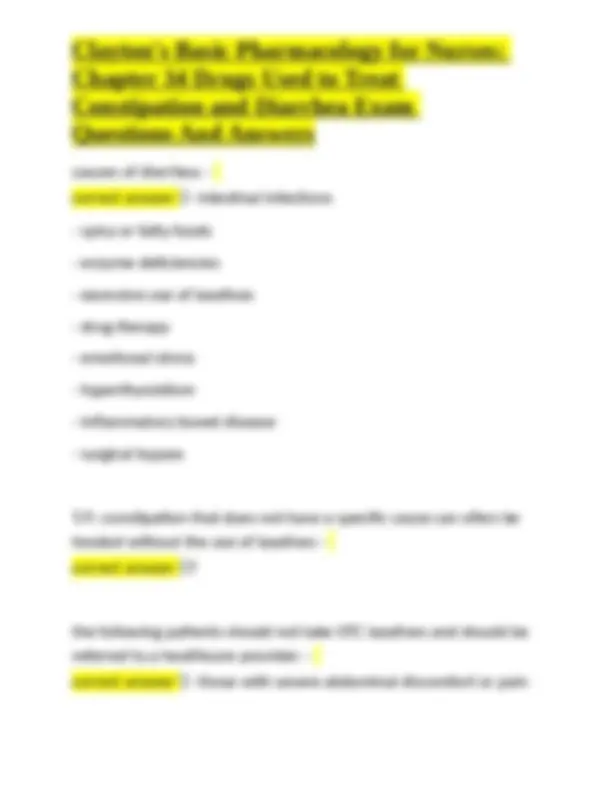
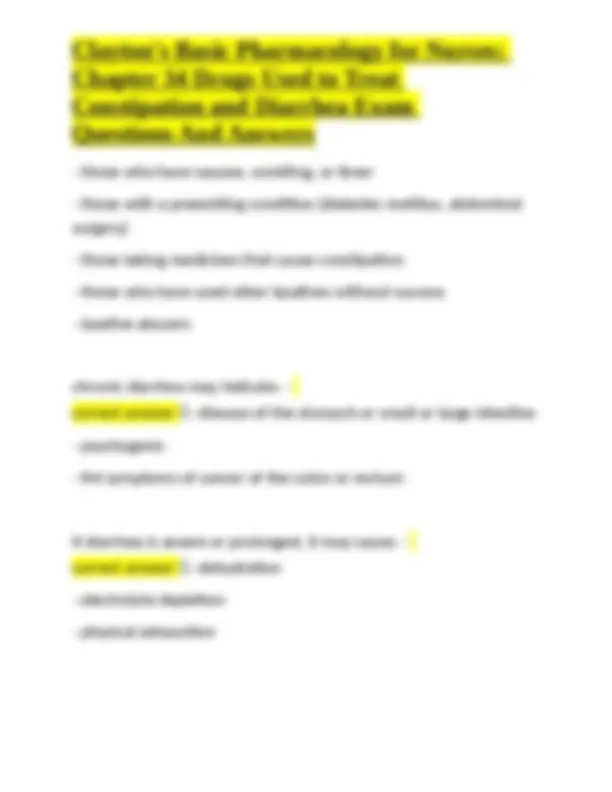
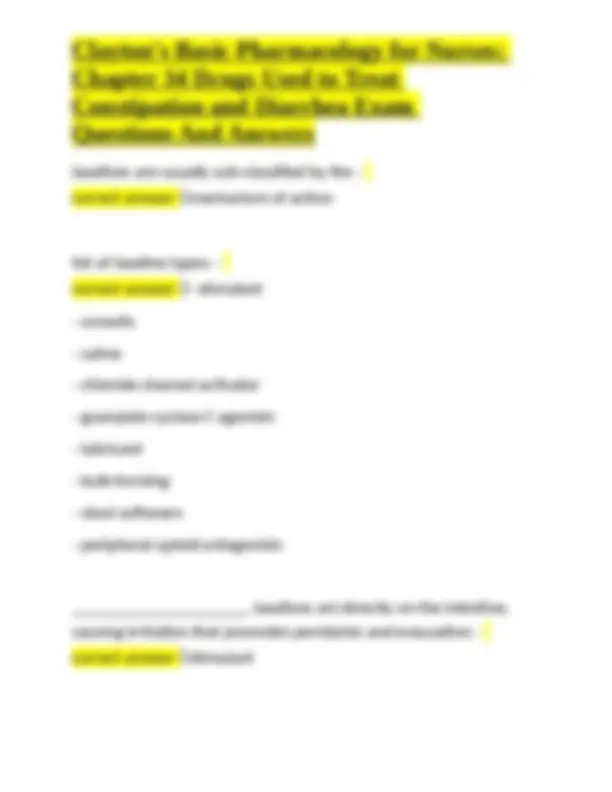
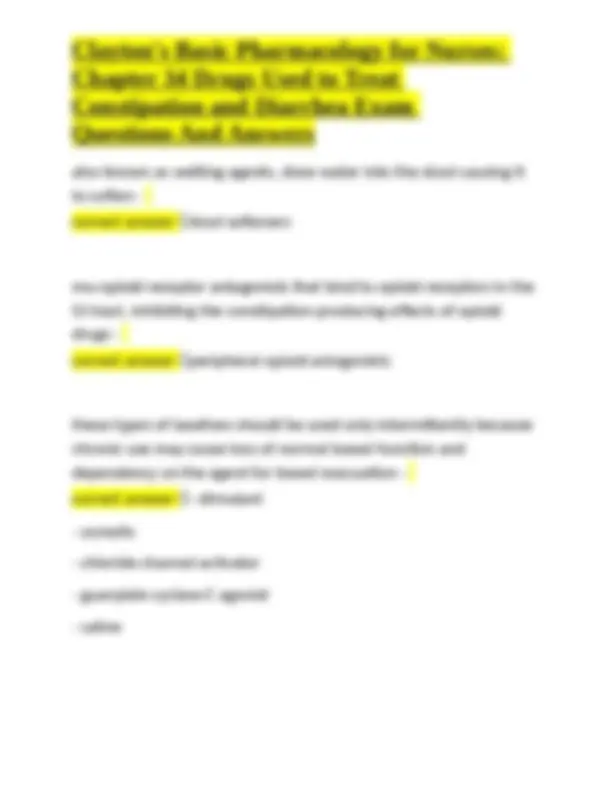
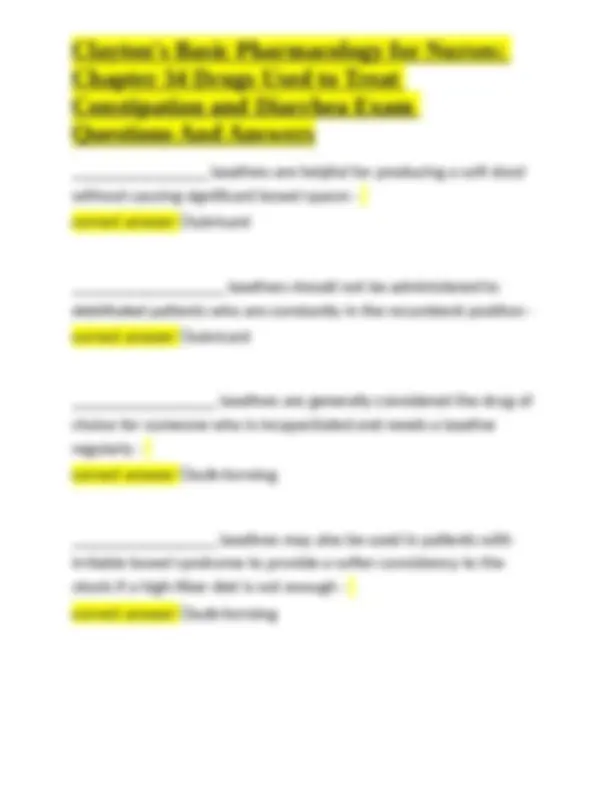
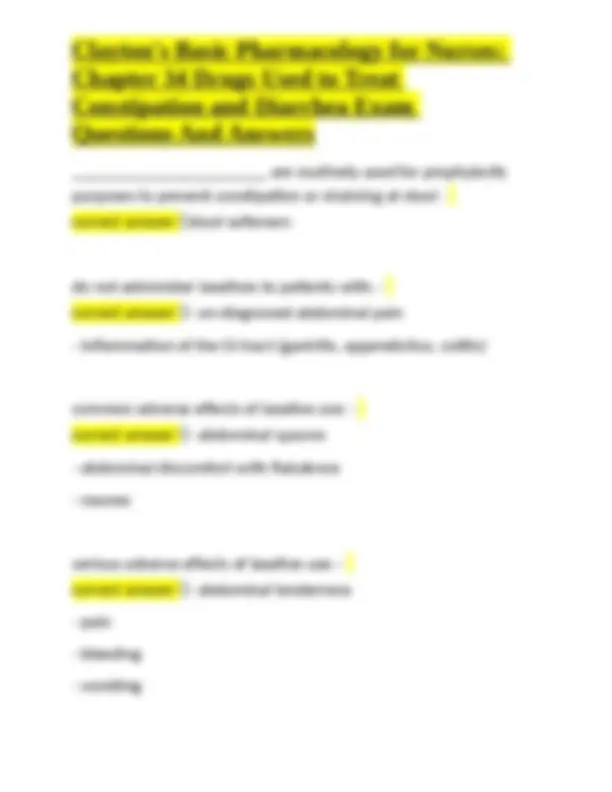
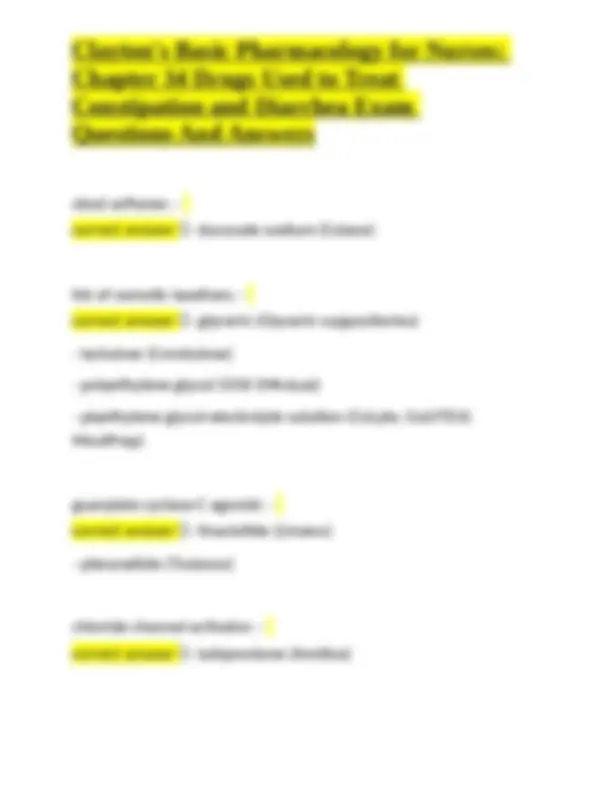
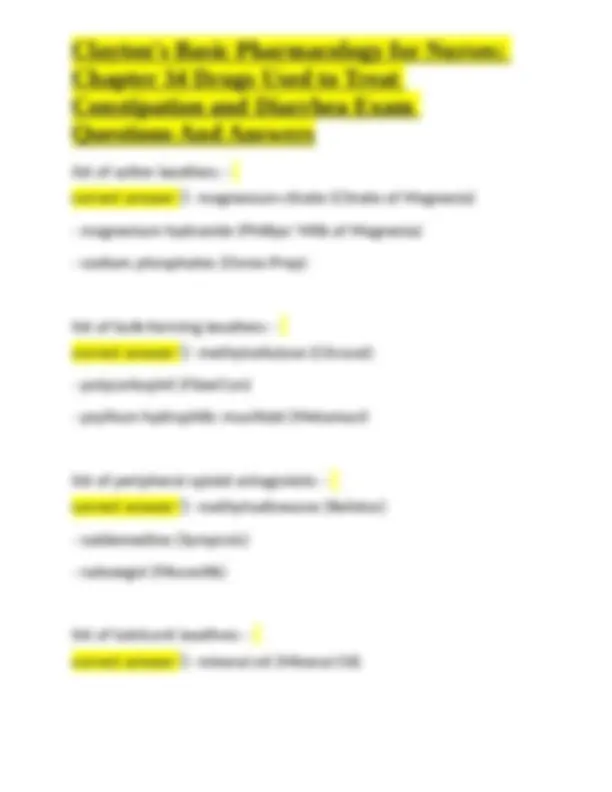
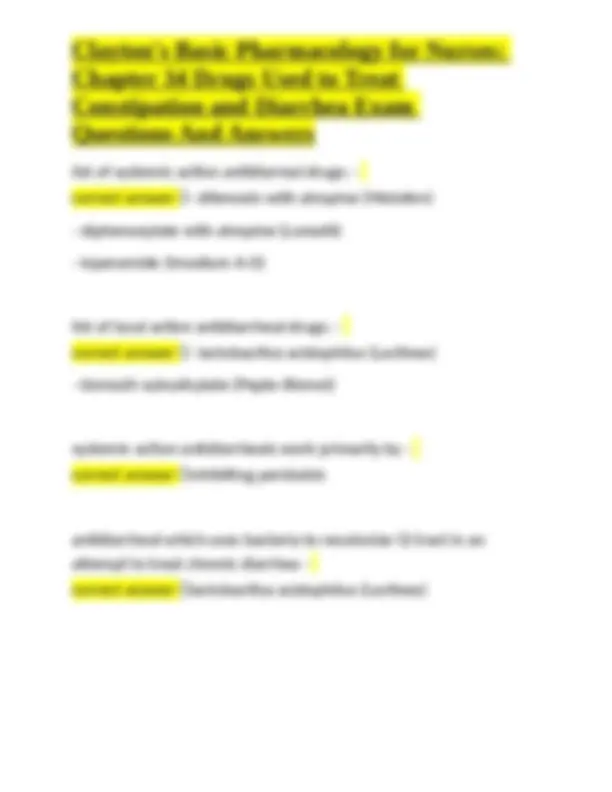


Study with the several resources on Docsity

Earn points by helping other students or get them with a premium plan


Prepare for your exams
Study with the several resources on Docsity

Earn points to download
Earn points by helping other students or get them with a premium plan
Community
Ask the community for help and clear up your study doubts
Discover the best universities in your country according to Docsity users
Free resources
Download our free guides on studying techniques, anxiety management strategies, and thesis advice from Docsity tutors
Clayton's Basic Pharmacology for Nurses: Chapter 34 Drugs Used to Treat Constipation and Diarrhea Exam Questions And Answers
Typology: Exams
1 / 15

This page cannot be seen from the preview
Don't miss anything!










a symptom-based disorder of unsatisfactory defecation and is characterized by infrequent stools or feces, difficult stool passage, or both - correct answer ✅constipation constipation may result from - correct answer ✅decreased motility of the colon or from retention of feces in the lower colon or rectum causes of constipation include the following: - correct answer ✅- improper diet
T/F: using laxatives or enemas daily should be avoided because they decrease the muscular tone of mucus production of the rectum and may result in water and electrolyte imbalance - correct answer ✅T an increase in the frequency or fluid content of bowel movements - correct answer ✅diarrhea T/F: diarrhea is a disease rather than a symptom - correct answer ✅F people traveling, especially to other countries develop what is known as __________________ diarrhea from ingestion of microorganisms that are pathogenic to their GI tracts but not to those of the local residents - correct answer ✅traveler's
laxatives are usually sub-classified by the - correct answer ✅mechanism of action list of laxative types: - correct answer ✅- stimulant
newest class of drugs approved for chronic idiopathic constipation, stimulates secretion of chloride and bicarbonate into the intestinal lumen, increasing intestinal fluid secretion which softens stools and increases motility with passage of feces - correct answer ✅guanylate cyclase C agonists ______________________ laxatives lubricate the intestinal wall and soften the stool, allowing smooth passage of fecal contents; peristaltic activity does not appear to be increased and frequent use may inhibit the absorption of fat-soluble vitamins - correct answer ✅lubricant ____________________ laxatives must be administered with a full glass of water, cause water to be retained within the stool which increases bulk and stimulates peristalsis - correct answer ✅bulk-forming usually considered the safest form of laxative - correct answer ✅bulk-forming
also known as wetting agents, draw water into the stool causing it to soften - correct answer ✅stool softeners mu-opioid receptor antagonists that bind to opioid receptors in the GI tract, inhibiting the constipation-producing effects of opioid drugs - correct answer ✅peripheral opioid antagonists these types of laxatives should be used only intermittently because chronic use may cause loss of normal bowel function and dependency on the agent for bowel evacuation - correct answer ✅- stimulant
_______________________ are routinely used for prophylactic purposes to prevent constipation or straining at stool - correct answer ✅stool softeners do not administer laxatives to patients with: - correct answer ✅- un-diagnosed abdominal pain
stool softener: - correct answer ✅- ducosate sodium (Colace) list of osmotic laxatives: - correct answer ✅- glycerin (Glycerin suppositories)
list of saline laxatives: - correct answer ✅- magnesium citrate (Citrate of Magnesia)